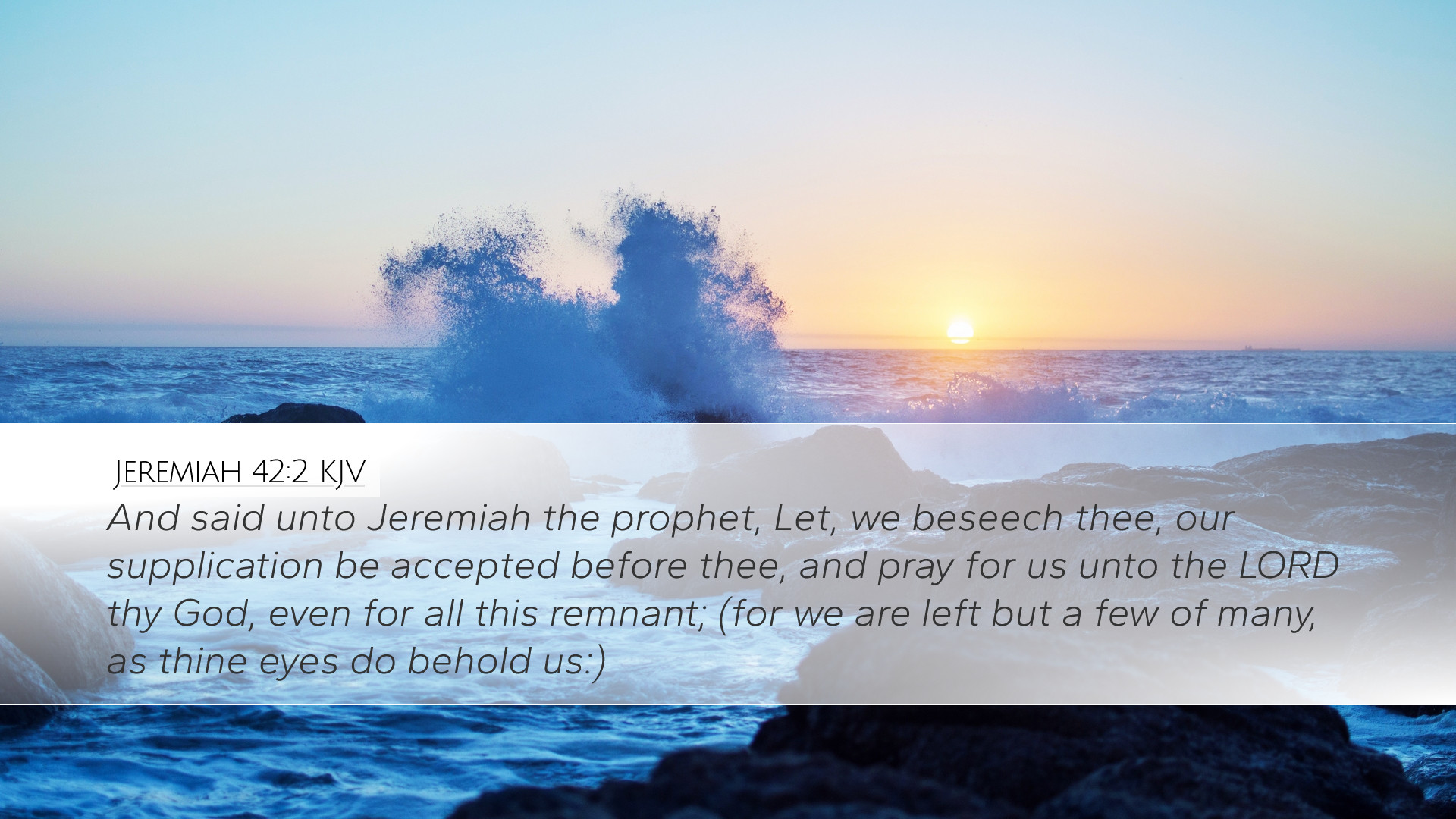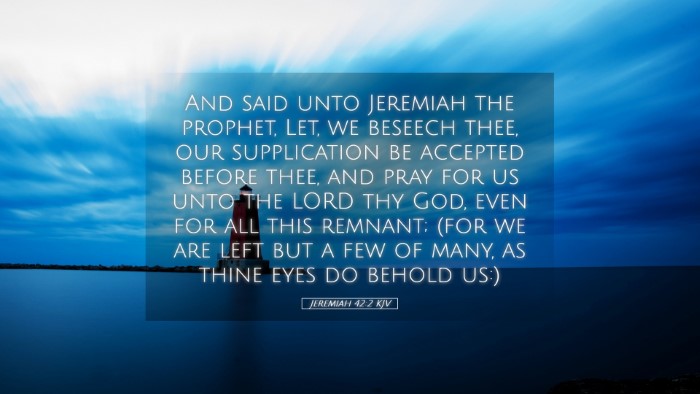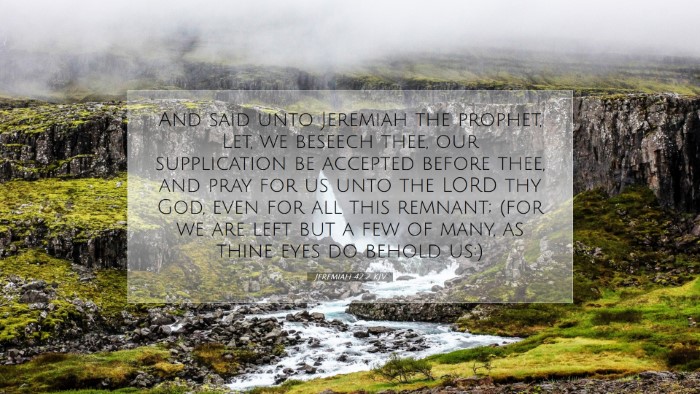Commentary on Jeremiah 42:2
The verse Jeremiah 42:2 states:
"And said unto Jeremiah the prophet, Let, we beseech thee, our supplication be accepted before thee; and pray for us unto the LORD thy God, even for all the remnant of Israel; for we are left but a few of many, as thine eyes do behold us."
Contextual Background
This passage occurs in a crucial moment for the remnant of Israel after the fall of Jerusalem. The people were in turmoil, struggling with the decisions ahead as they faced the threats of foreign oppression and the consequences of their past disobediences. They sought guidance from Jeremiah, acknowledging his prophetic authority and their desperate need for divine intervention.
The Plea for Prayer
The appeal made to Jeremiah highlights the communal aspect of faith among the remnants of Israel. They recognized their diminished state and their collective need for God's mercy. The phrase "Let, we beseech thee, our supplication be accepted" indicates their urgent desire to be heard by God through the prophetic intercession of Jeremiah.
Insights from Matthew Henry
Matthew Henry emphasizes the humility and sincerity of the people’s request. He notes that their acknowledgment of Jeremiah’s prophetic role reflects a deeper understanding of their need for divine guidance, which is crucial for spiritual revival.
- Humility: Henry reflects on the importance of approaching God with humility, paralleling their request to how individuals should approach God in prayer.
- Recognition of God’s Authority: He points out that the people's plea signifies their recognition of God’s sovereignty and Jeremiah’s position as His messenger.
Insights from Albert Barnes
Albert Barnes offers a detailed examination of the nature and implications of their request. He highlights that the remnant's plea for prayer is characteristic of their desperation and the recognition of their need for God's mercy.
- Despair and Hope: Barnes remarks that this moment captures both despair due to their circumstances and hope in God’s compassion and willingness to respond to the humble prayers of His people.
- Corporate Prayer: He sees an important principle in their call for collective prayer, emphasizing how prayer should be a communal endeavor in seeking God’s direction.
Insights from Adam Clarke
Adam Clarke provides a rich analysis of the sociopolitical and theological context of the plea made by the people. He delves into the historical significance of this request as it marks a turning point for Israel in their relationship with God.
- God’s Remnant: Clarke describes how the remnant symbolizes hope for Israel, serving as a bridge between their past failures and future restoration.
- The Importance of Prayer: Clarke emphasizes that their request to Jeremiah to pray was not merely a formality but a profound act of faith that underscores the power of intercessory prayer.
Spiritual Applications
Examining Jeremiah 42:2 offers vital lessons applicable to contemporary believers, pastors, and scholars:
- Importance of Intercession: It highlights the necessity for intercessory prayer in communal settings, calling for leaders to earnestly seek God’s grace on behalf of their congregations and communities.
- Awareness of Spiritual State: Just as Israel acknowledged their remnant status, modern believers must reflect on their spiritual state, recognizing God's grace as essential for revival.
- Role of Prophetic Voices: The need for prophetic voices in the community today remains critical; churches should support and heed leaders who earnestly seek God's will through Scripture and prayer.
Conclusion
Jeremiah 42:2 serves as a poignant reminder of the need for divine guidance during times of uncertainty. The plea from the remnant of Israel encapsulates themes of humility, intercession, and a sincere desire for God's mercy. Historical and theological insights from esteemed commentaries enrich our understanding of this significant verse, urging a deeper commitment to prayer and reliance upon God's sovereign will in our lives.


